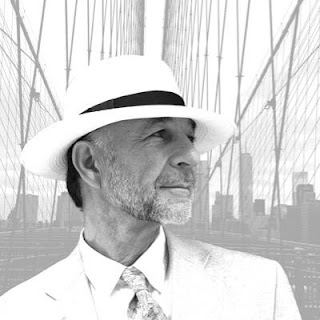Monday, October 30, 2017
Freedman
With the Deferred Action for Childhood Arrivals (DACA) policy's future in question, revisit Jonathan Freedman's prize-winning editorials on immigration in California.
Twenty-eight years after Jonathan Freedman won the 1987 Pulitzer Prize for Editorial Writing, an interviewer asked him how the winning work came to be.
Freedman answered:
“I was 30 years old, unemployed, freelancing in Haight-Ashbury. I went down to San Diego for a job interview at the Tribune. The editor took me to the cafeteria. ‘Jonathan, on my way to work, I saw these poor migrant workers hiding in the bushes in the rain. I’ve worked for this newspaper for 30 years. Every day we report murders and terrible things on the border. But we’ve never gone into depth on the issues underlying illegal immigration. If we did that, we could win a Pulitzer Prize.’
“I needed a job. The idea of a Pulitzer Prize was beyond my imagination. I got hired and trained as an editorial writer. Six months later, I said, ‘Mr. Bennett, do you remember what you said about the border?’ ‘Yeah, but we have no time,’ he said. ‘Write me a proposal.’ So I wrote, ‘The border between Mexico and the United States is where water flowing from the Colorado River stops, and a river of humanity flows northward from Mexico to United States.’
“So, the next day, I went to the border outpost at the extreme southwest corner of the United States and Mexico. I saw a hole in the chain-link fence. It was the size of a crouching man. Then I interviewed the border patrol agents. They told me how they’d get alerted when someone trips a wire. They’d chase them; they’d arrest them; they’d deport them. And the next day, they’d be back. I saw a holding tank for people who had been caught trying to cross the border. It was dark and dingy and someone had written on the wall mojado power, ‘wetback power.’
Easter sunrise on the border ends in trauma
By Jonathan Freedman
The night before Easter, three companeros crawled through a hole in the chain-link fence — into America. The border where they crossed is a no-man’s land. But in the spring, yellow flowers bloom waist-high beside the torn fence.
The companeros stopped to rest. Tomorrow was Domingo Santo, the holy day when the crucified Jesus rose from his tomb.
They laid a blanket under the flowers near a dirt track. They lay down and nestled together.
"Novel excerpt by Pulitzer Prize-winning journalist and author Jonathan Freedman,"
If you have any questions regarding Freedman Novel or any other immigration topic,
Please contact LEGiTiGO
Subscribe to:
Post Comments (Atom)

No comments:
Post a Comment